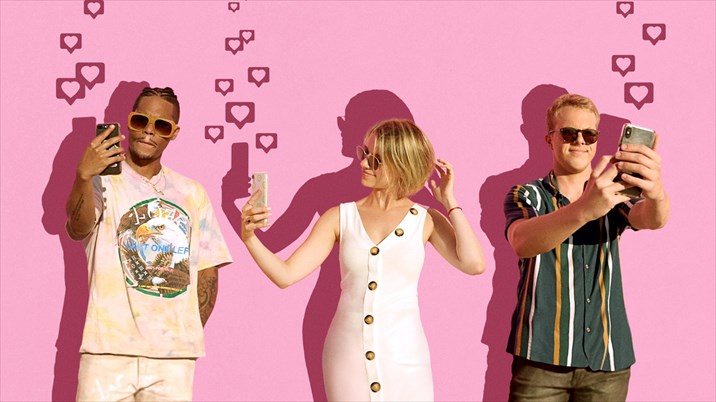
Fake Famous explores the meaning of fame and influence in the digital age through an innovative social experiment. Following three Los Angeles-based people with relatively small followings, the film explores the attempts made to turn them into famous influencers by purchasing fake followers and bots to “engage” with their social media accounts.
First-time director and veteran journalist Nick Bilton and his team kick off the experiment with a casting call in Los Angeles. The young trio he selects — aspiring actress Dominique, fashion designer Chris and real estate assistant Wylie — in return have wildly different experiences as their fake followers grow by the thousands each day. Peeling back the layers to reveal what’s really happening behind the scenes of influencer fame, the film highlights our obsession with the number of likes, followers, and favorites we get and how most of our online world is more fabricated than we realize.
Summary and spoilers
At the beginning of the film, it shows a lot of people posing and taking pictures in front of the Pink wall. It has become a tourist destination to rival the Eiffel Tower, or the graffitied remains of the Berlin Wall. The bright pink exterior wall of Paul Smith, a clothing retailer, where in the wall was repainted every three months in the Pantone shade “Pink Ladies” which is the background to hundreds of thousands of photos, making it one of the most Instagrammed places in Los Angeles, and even the world.

Why did a wall become so famous? Perhaps because the people who pose in front of it imagine their own fame. They stand there, take a picture, and post it on the internet in the hope that people will like it hundreds of people, strangers even. On Instagram, people can become famous for this kind of display. The desire for fame motivates people to move strangely through the world, to distort reality into its most photogenic, and to assign high amounts of value to things that seem to have little material worth. Like the pink wall. As with so much of what becomes popular on Instagram, the pink wall is not recognizable because it demonstrates great artistry or elicits an emotional experience. It is simply famous for being famous.
In the film, Nick Bolton asks a question, it’s a question that everyone has been asked at one time or another. What do you want to be when you grow up? For decades when researchers asked its this the answer was often the same. Today Kids in America say they want to be an influencer more than any other occupation on Earth. According to the documentary there are over 40 million people who have over 1 million followers on Instagram. There are over 100 million people who have more than a hundred thousand followers and if they are famous, how can over 140 million people or almost half of the population of the United States all be considered famous? Now Nick decided to do an experiment to see if they can take random people online and make them famous influencers.
“Do you want to be famous?” This is the question, posed in an open casting call, that drew thousands of young people to audition for a role in HBO’s Fake Famous. Then the audition began and they interviewed a lot of candidate for the role.
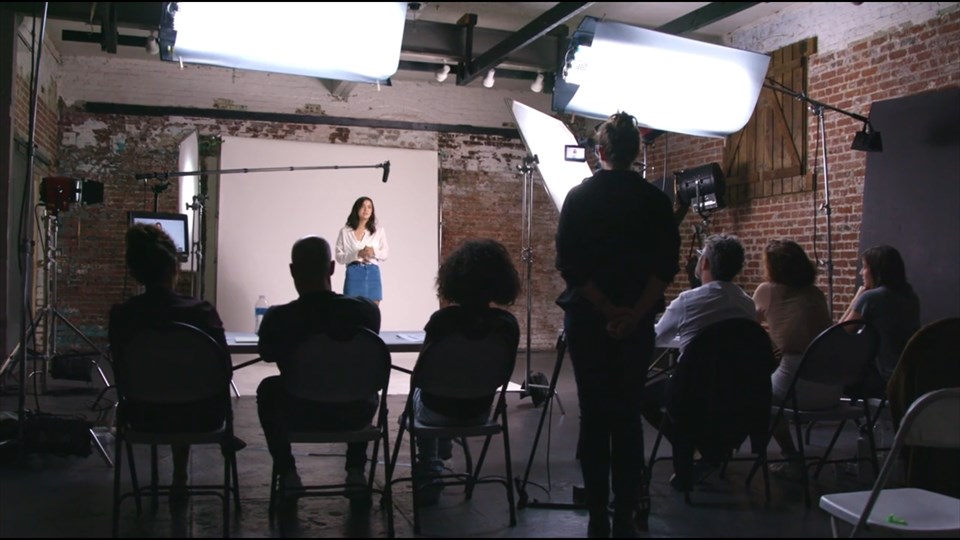
Nick says that for more than a decade he was the guy who went on TV defending social media as a reporter for the New York Times in Vanity Fair. He was covering the impact of technology on society and now as almost four billion people spend a collective hundred billion hours a day on sites like Instagram Facebook and Twitter. He realized that there are vast unintended consequences to these platforms not least of which is people’s obsession with Fame hence this social experiment.
As articulate and attractive young adults, all three participants meet the basic requirements for influencer status. Dominique is an aspiring actor who radiates down-to-earth warmth and subsidizes her work in student films with a day job hawking athleisure. One of the first things we learn about her is that she’s resisted pressure, in auditions, to agree to nudity and simulated sex. Muscular and confident, Chris is a budding fashion designer who moved to L.A. from Arizona in hopes of growing his custom-clothing label. He also works retail. Finally, there’s Wylie, who relocated from Atlanta in pursuit of a livelier gay community. A tender, anxious sort, he’s assisting a real estate agent while searching for his purpose in life. “Everybody wants to be known for something,” Chris says early in the film. Instagram, he believes, is the vehicle to get there.
As part of the experiment, Dominique, Chris, and Wiley get makeovers from a team of stylists. They get photographers to assist them in a series of creative photoshoots, which then populate their Instagram feeds.
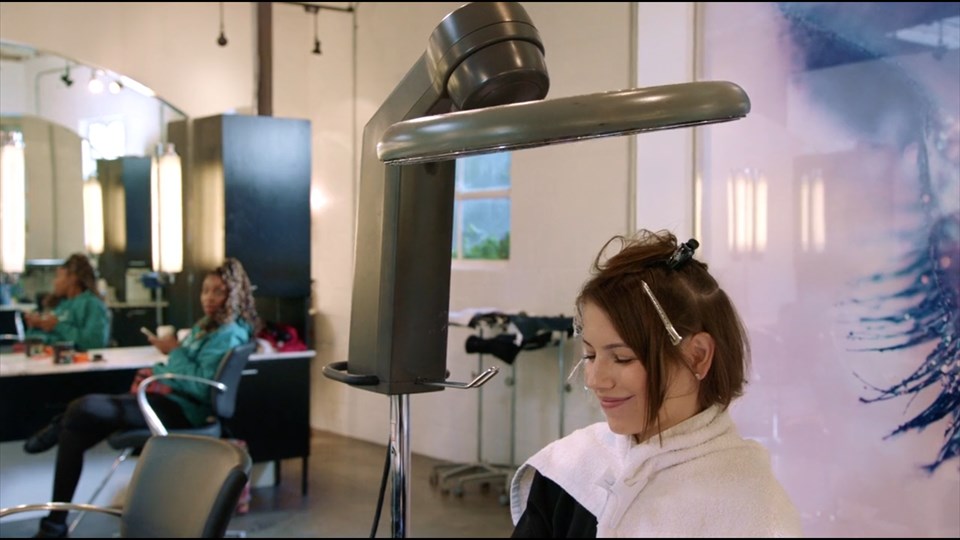
Chris fakes a trip on a private jet by renting a set for $50 an hour.
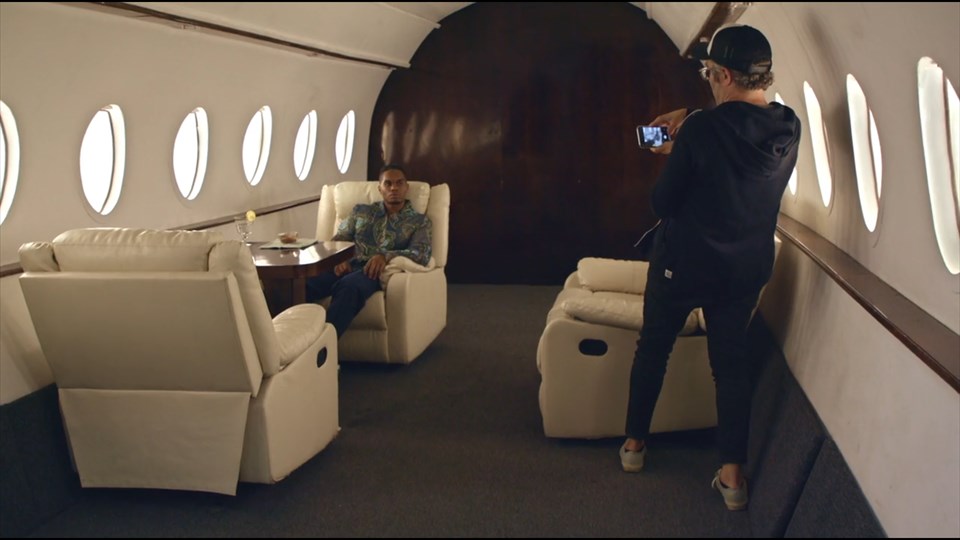
Wiley and Dominique sip champagne in a backyard pool, staged to look like a luxury hotel.
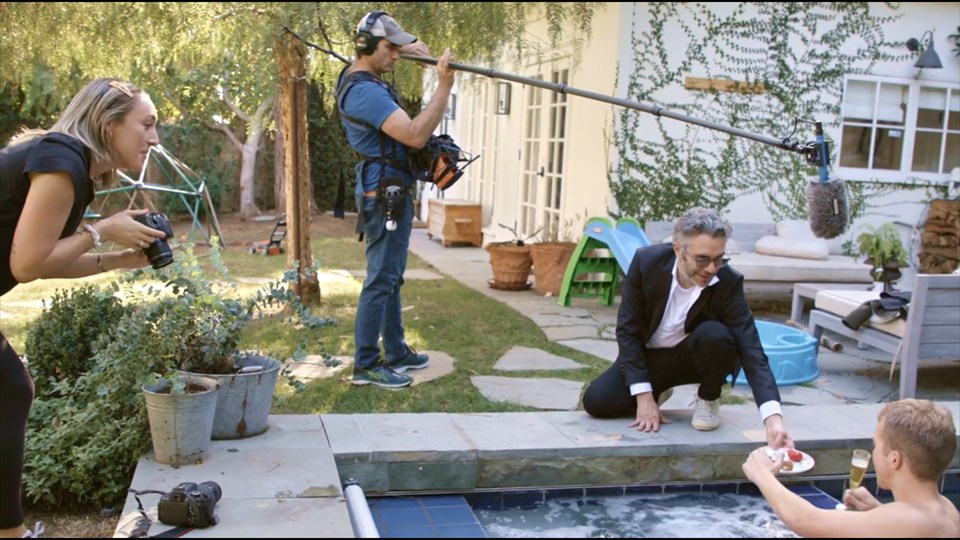
The photo stunts are highly entertaining, and they expose a side industry that helps to approximate the lies of Instagram with flimsy props and sets. At one point, Dominique posts a photo of herself gazing out the window of an airplane. In reality, the window was a toilet seat, held in front of a landscape photograph.
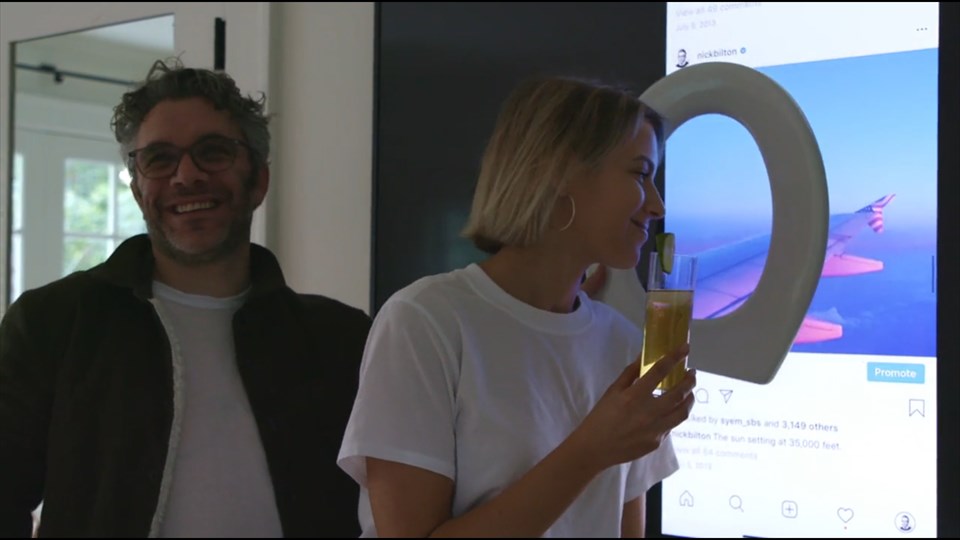
They also get thousands of bots, purchased by Nick, to juice their numbers on Instagram. The bots inflate their follower counts and likes and comments each time they post new photos. The bots aren’t cheap, nor do they seem particularly authentic. But the bots do produce real results. After a while, the fake followers start to capture the attention of real people, and brands, who believe that Dominique, Wiley and Chris have become genuinely popular.
Dominique started to attract a lot of brands and gifts have been piling up from her doorsteps in exchange for a post or a promotion of their brand from her Instagram. For Wiley, things are going a little differently. After a while he had been harassed by some troll. He’d stopped posting on Instagram. He became obsessed with the Bots worried that now that he had almost 30,000 followers and people would figure out that they weren’t real if he didn’t get enough fake likes and fake comments on his posts. Chris, at one point, starts deleting the fake comments because they sound so cheesy, and all he ever wanted is to be authentic and he would rather be broke and real than be rich and be fake.
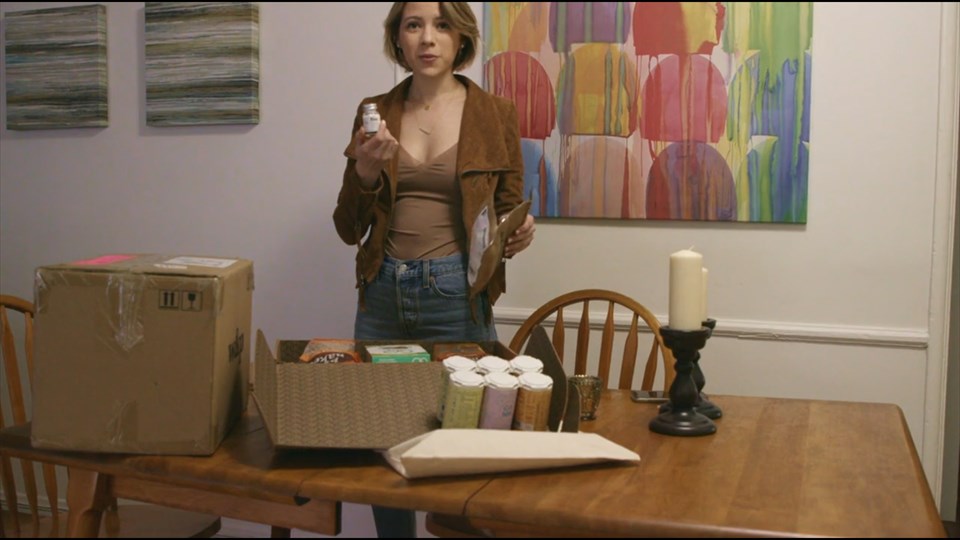
Wiley is now grappling with his anxieties around social media took some time, Nick finally turned off all the fake engagement and turned out to be the best thing that could have happened to him. Wiley said that before he would post he was so uncomfortable with himself and thinking about what other people are going to think of him. He was embarrassed to think that he placed his validation in that he learned that it doesn’t matter. This is the way he got a new job. He now works in a place where he is appreciated. Now, he doesn’t have that stress. Now when he posts in instagram it’s fun again.
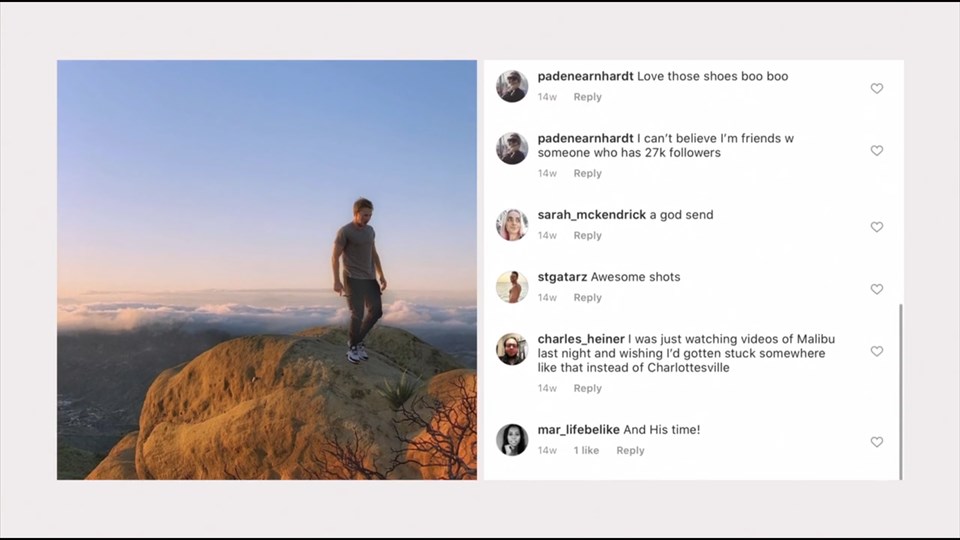
Given that Chris no longer wanted the fake engagement and Wiley didn’t want to be part of the experiment anymore the only person they have left is Dominique. She is now thriving in her new life as an influencer, she’s getting free beauty regimens, she’s become a brand ambassador for a gym, she’s booking commercials and has had more callbacks and auditions than ever before.
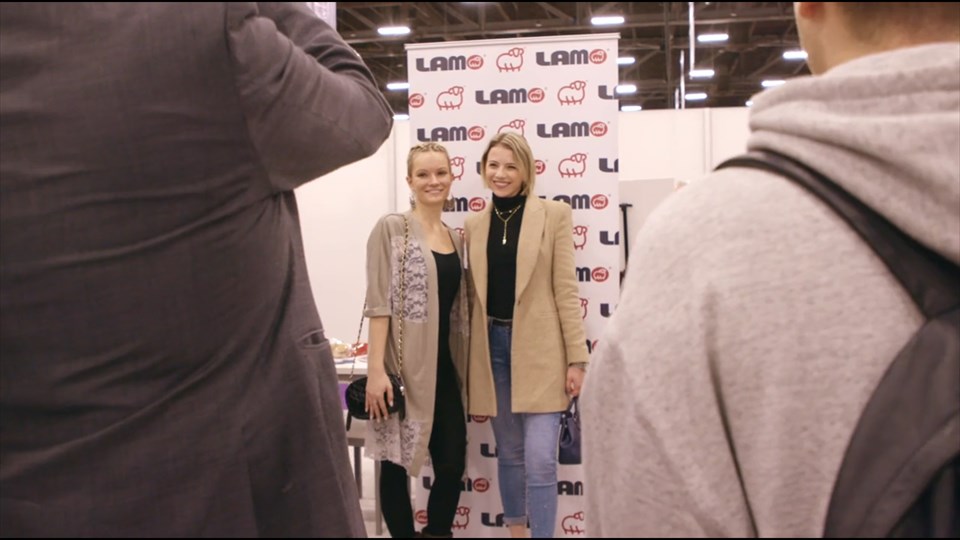
Some things are happening for Dominique that they could not have dreamed of in the beginning. She’s got paid partnerships with a makeup and jewelry company they got this opportunity in the Hallmark of Influencer Fame which is a free all-expense-paid vacation, which includes a free hotel suite for Dominique and a friend, $1,000 shopping spree, bottle service at a club dinner at a five-star restaurant and spa treatment. What does Dominique have to do for all this? Just post the whole experience on Instagram tag the hotels in spa and make sure that her hundreds of thousands of followers see it.
As they were about to leave for the free influencer vacation, the world came to a standstill, stay-at-home orders were issued around the globe and in America city after city shut down. They canceled their trip and along with the rest of America, they instantly went into quarantine as a global pandemic started to kill hundreds of thousands of people. And yet what was so strange was when you scroll through Instagram all those influencers they were still posting photos of themselves as if everything was perfectly normal.
As for Dom as the global economy started to collapse and millions of people lost their jobs businesses were so desperate to make a sale that they were still sending her free stuff.
Months later when black lives matter protests erupted across the country while these tragic stories of racism and abuse might not have been seen had it not been for social media. There was uproar online when people accused some influencers of using the opportunity as another photo op, It’s not just about the fake followers in the fake photos and the fake Fame.
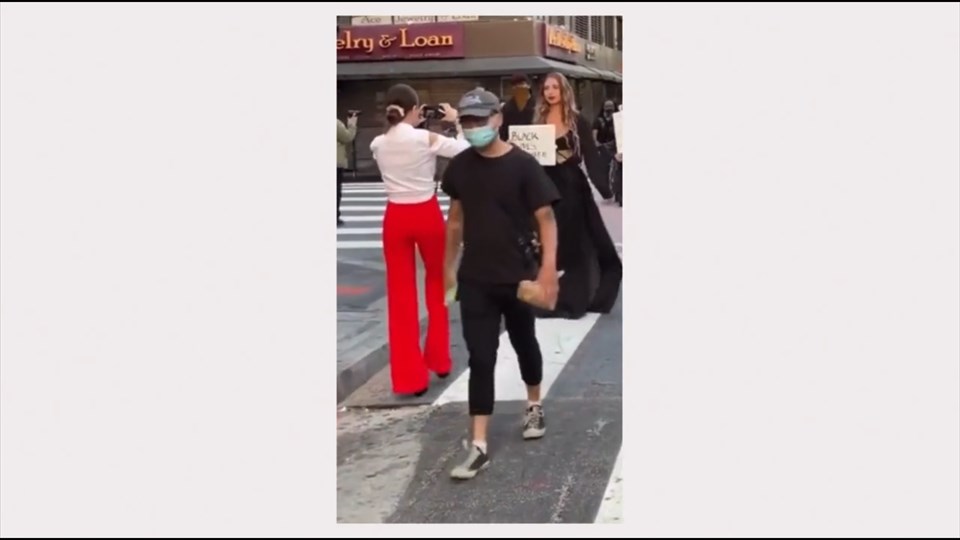
That’s so troubling here at the end of the day. They don’t make you feel better about yourself. The entire concept of influencing is to make you feel worse. It’s to say look at this lavish life. Looking at these amazing vacations and these wonderful products that they use even if in reality, it’s not that wonderful. The documentary ended by showing profiles of child influencers in Instagram posing like adults.
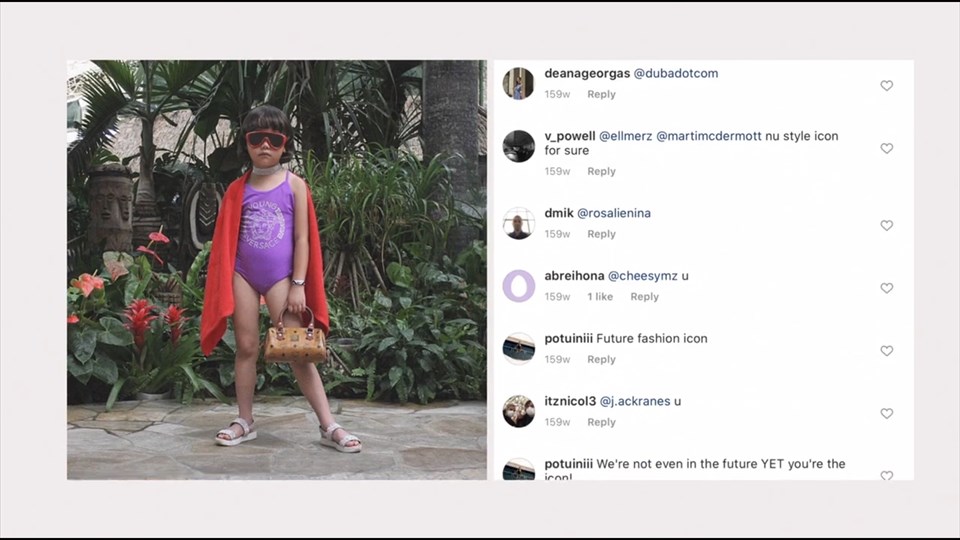
I think this documentary shows us that you can totally become an influencer if you really want to. I may want to completely come to be an influencer if I employed a hair/make up/fashion crew to present my appearance a refresh and regularly offered bots to maintain liking my staged photo shoots. Eventually, the bots will get replaced through actual fans and I can set sail from there.
Justine Bateman stated withinside the document that influencers are essentially a modern-day infomercial host and I suppose that’s the high-quality description for an influencer now lol. They’re models, they’re advertisers, a few are brands unto themselves.
I think influencing is only a new edition of modeling albeit it’s a whole lot extra achievable. If you’ve got got the proper appearance, when you have the proper niche or even in case you don’t, you may shop up the bots to fake it till you are making it. You don’t even need to make it to one million fans. Just have approximately 5-10K could make you a micro influencer.
Whether it’s far sustainable is the question. If all people is buying bots and engagement, both the set of rules goes to get extra sophisticated to seize them or the bar for followers/engagement is simply going to preserve getting raised to ridiculous, unrealistic proportions. Or, alternatively, a brand new platform will pop up (like TikTok) and those will need to wait to discern out a way to hack it to leap to the top of the pack.
I observed It exciting that Chris and Wylie backed out of the fake influencing, specifically when you consider that Chris stated in his audition tape that he “deserved” to be famous. I can recognize Dominique embraced it due to the fact social media is tied into her appearing profession and I suppose it changed into stated she had the faster upward push of going legit.
I can think Wylie getting second thoughts due to the fact his buddy observed the bot interest however I’m amazed Chris hated them due to the fact they are not real.
I do think that Nick Bilton was really trying to send a message here, at the end of the movie they showed a bunch of profiles of kids posing like adults, getting tons of likes and comments in instagram. I hope their parents wouldn’t let this happen and let them be kids and experience the normal life instead of exposing them to a fake existence in their early stage of life.
I honestly have no interest in becoming an influencer because even before watching Fake famous, I’ve always knew that what you post in social media is just an image that you wanted other people to see. I also don’t like fame and lots of attention. I don’t post a lot on my Instagram and I also don’t spend so much time in social media. I just don’t feel as if people in social media are authentic.
I have nothing against social media and influencers, I know a lot of them have good intentions and uses the platform for good things and spreading awareness. I’ve seen some celebrities and influencers posting about mental health awareness, body acceptance, health protocol for corona virus, raising funds for charity, justice for George Floyd, Breona Taylor and other people who were victims of injustices. I think it takes a lot of courage to post about issues and standing for what you believe in, an example for this are the famous people in Instagram who’s campaigning for Joe Biden before the US election. They knew that some fans are Trump supporters, some even leave bad comments on their post but they were never afraid to lose their fans. There are pros and cons on becoming an influencer and I hope if many of the kids today wanted to be an influencer I just hope that they would be properly educated enough to be authentic as they can be.